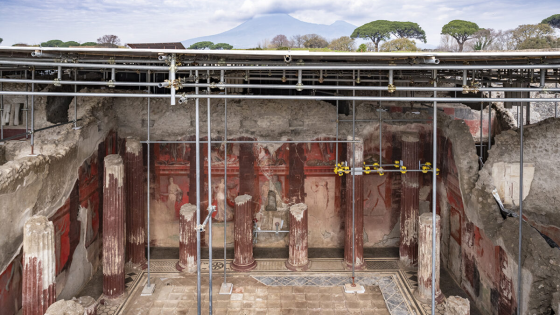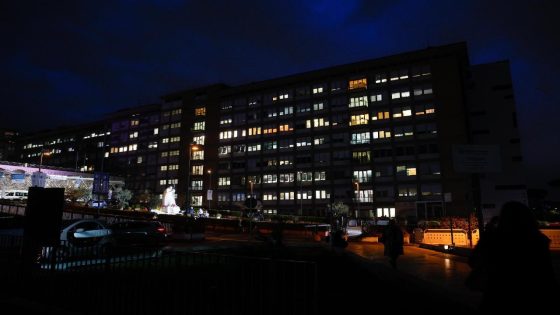Archaeologists at Pompeii have uncovered a rare wall painting that illustrates an ancient mystery cult, featuring a woman being initiated during the night. This significant discovery was announced by the Pompeii Archaeological Park on February 26, 2025, following the excavation of the House of Thiasus.
- Rare wall painting discovered in Pompeii
- Depicts initiation into ancient mystery cult
- Features maenads and satyrs in fresco
- Suggests hunting rituals in Dionysian rites
- Historical context of Dionysian mysteries explored
- House of Thiasus now open for tours
The fresco spans three walls of a large banquet hall and includes vivid depictions of maenads and satyrs associated with Dionysus. Experts believe this find sheds light on the secretive rites of the Dionysian cult, suggesting that Roman initiates may have engaged in hunting rituals similar to their Greek predecessors.
The newly discovered fresco in Pompeii provides a glimpse into the rituals of the Dionysian mystery cult, which dates back to the classical Greeks. The painting is notable for its vibrant imagery, depicting female followers of Dionysus, known as maenads, engaged in activities like hunting and sacrifices. This contrasts with a similar fresco found in 1909, which lacked hunting imagery.
Key details about the fresco include:
- The painting runs along three walls of a banquet hall.
- It features an old satyr and a young woman at the center, indicating an initiation ritual.
- Historical accounts suggest that these mysteries involved wine and other intoxicants.
Gabriel Zuchtriegel, director of Pompeii Archaeological Park, noted that both this fresco and the earlier Villa of the Mysteries mural reveal the “wild, untameable side of women.” The frescoes date back to the middle of the first century B.C., preserved by the eruption of Mount Vesuvius in A.D. 79. They reflect a cultural context where Dionysian festivals were reportedly banned in 186 B.C., yet continued in practice, particularly in Pompeii.
This discovery at the House of Thiasus not only enriches our understanding of ancient religious practices but also underscores the enduring significance of Dionysian themes in Mediterranean culture. The fresco will be included in tours of ongoing excavations, allowing visitors to appreciate its historical context.

































